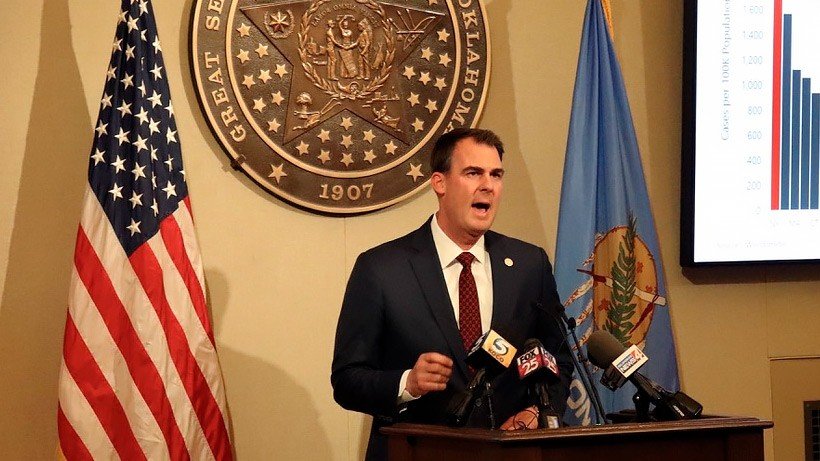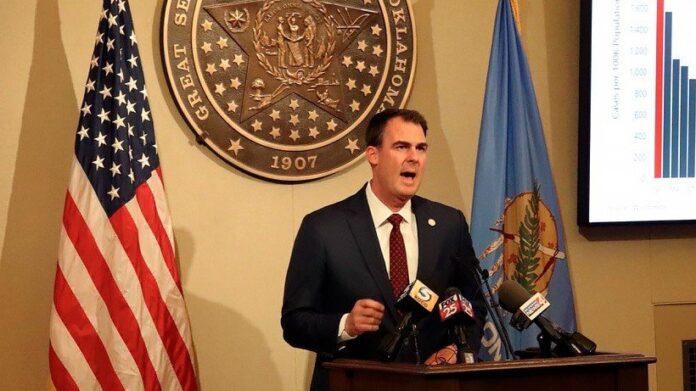
Oklahoma Governor Kevin Stitt has caught lawmakers off guard by unveiling a plan to legalize sports betting in the state earlier in the week, triggering a mix of confusion and debate among lobbyists, legislative leaders and tribes. The initiative aims to align Oklahoma with over 30 other states that have already legalized sports wagering since the repeal of a federal ban in 2018.
In response, House Speaker Charles McCall has scheduled a meeting with leaders of the state’s major tribes to discuss potential adjustments in the tribal compacts, a topic of controversy for the past five years. Stitt, governing since 2019, clashed with tribal leaders when he attempted to renegotiate gaming agreements the same year he took office, as the state’s Model Tribal Gaming Compact approached the end of its 25-year initial term.
Stitt’s proposal includes the legalization of betting at venues operated by federally recognized tribes and on mobile devices, with an initial $500,000 licensing fee and an annual $100,000 renewal fee for online operations. The plan also calls for a 15% tax on in-person betting revenue and a 20% tax on mobile betting, although states have no jurisdiction to tax tribal casinos.
Instead, state-tribal gaming agreements can include “fees” paid to states by tribes for “exclusivity” in a gaming market. It’s unclear how Stitt would try to authorize non-tribal sportsbooks while establishing exclusivity fees from tribal sports betting, notes NonDoc.
The governor now needs to convince both the legislature and the tribal nations to endorse the plan, a complicated task given the history of disputes and legislative support tending to favor tribal interests.
Recently, the legislative Joint Committee on State-Tribal Relations rejected new gaming compacts signed by Stitt with smaller tribes, following opposition from the largest tribal nations. The upcoming meeting, convened by McCall, will feature leaders and lawyers from the Chickasaw, Choctaw, Cherokee, and Muscogee nations to debate the state’s tribal compacts.
Since his first year in office, Stitt has been pushing for sports betting, with the initial support of Republican lawmakers. However, Stitt’s standing with many Republican lawmakers has since declined, mainly over annual budget negotiations and state-tribal relations.
During this year’s regular session of the Oklahoma Legislature, the House passed HB 1027, which would allow tribes to offer in-person and mobile sports betting. The bill, introduced by Representative Ken Luttrell (R-Ponca City), passed the House but did not receive a Senate hearing. It may be reintroduced during the regular session starting February 5, 2024.
Senator Bill Coleman (R-Ponca City) co-authored HB 1027, which would add in-person and mobile sports betting as a supplement to the Model Tribal Gaming Compact and establish a mobile exclusivity fee system for the revenue percentage that would go to the state. Coleman said Stitt did not reach out to him with his plan, showing surprise given he already has an active piece of legislation.
State-tribal relations seem to have further soured with Stitt’s unexpected sports betting plan, which could open the door to non-tribal online sports wagering. This move, apart from being unforeseen, introduces potential conflicts with the existing agreements, under which tribal nations contribute millions of dollars monthly to the state in exchange for exclusive gaming rights.
The Oklahoma Indian Gaming Association expressed its disapproval, highlighting the lack of consultation by the governor prior to announcing his sports betting proposal. House Speaker Charles McCall and Senate President Greg Treat confirmed the communication breakdown, stating they were also not consulted.
Original article: https://www.yogonet.com/international/noticias/2023/11/07/69536-oklahoma-gov-39s-unexpected-sports-betting-plan-sparks-tensions-with-tribal-leaders-legislators














